In this blog post, you’re going to learn how to easily propagate and care for Philodendron Burle Marx.
This is a comprehensive guide covering reliable information about different aspects of this cultivated variety.
In this post, I’ll cover:
- Interesting Facts
- Propagation
- Repotting
- Care
- Similar Plants
- Solutions to Common Problems
So, if you are looking to propagate and care for Philodendron Burle Marx, this guide is for you.
Let’s jump right in!
Fun Facts About Philodendron Burle Marx
| Common Name | Philodendron Burle Marx |
| Botanical Name | Philodendron burle marxii |
| Family | Araceae |
| Plant Type | Perenneial |
| Fruit | Yes |
| Mature Size | 8 ft. tall, 6 ft. wide |
| Sun Exposure | Partial |
| Soil Type | Well drained and moist |
| Soil pH | Acidic |
| Native Area | Brazil and South America |
| Toxic | Toxic to humans and pets |
| Growth | Fast growth |
Similarities between Philodendron Burle Marx and other species within the Philodendron genus include growth patterns and recommended care indicators. Like most Philodendrons, it is considered a tropical plant best suited to grow indoors and in different lighting conditions.
Similar to the species of this genus, it grows as a climber or a trailer and is suitable for hanging basket.
This characteristic of growth and care requirements clearly shows that it belongs more closely to the Philodendron family, and all the varieties of it are related genetically.
Philodendron Burle Marx’s main attraction is its large, glossy leaves, which are of extraordinary shape. Its leaves are usually heart-shaped and have more defined, longer lobes that make them look rather beautiful. The margins of the leaves can also be lobed, making the plant’s appearance more aesthetic.
This fully developed leaf structure is not only very beneficial for the plant’s aesthetic appeal but also plays a role in the plant’s ability to handle changes in the indoor lighting environment.
Flowering and Growth of Philodendron Burle Marx
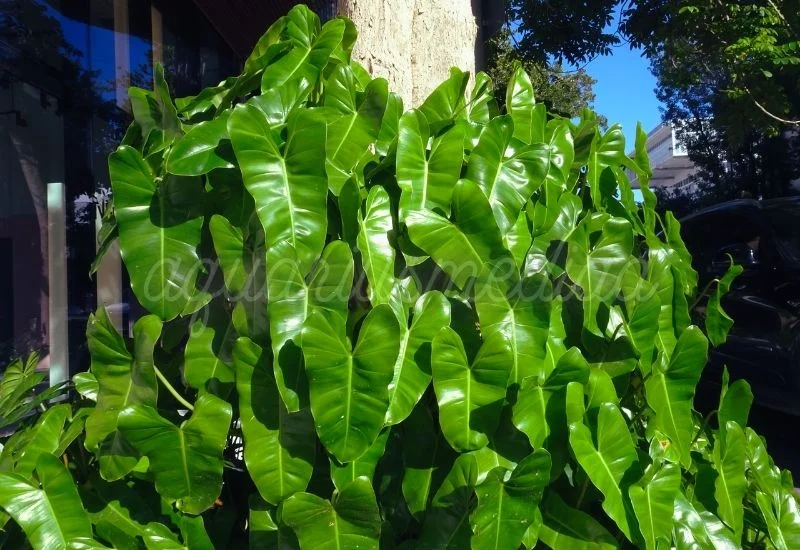
It experiences tremendous growth, especially when young and healthy in the spring and summer periods. These are the months of intense plant growth; new leaves form and increase in size very fast during this period.
Knowing about this growth cycle is essential to meet the needs of caring for the plant, which includes helping the plant recover from stressful conditions like overwatering or lack of light.
P. Burle Marx is a vascular plant, it is not the floraison most sought after, as flowering is uncommon indoors as a potted plant. It flowers rarely, and often, they are small and not even showy. They are generally seen in the photos.
Hence, the place’s name, ‘Burle Marx’, refers more to foliage than flowers.
Benefits
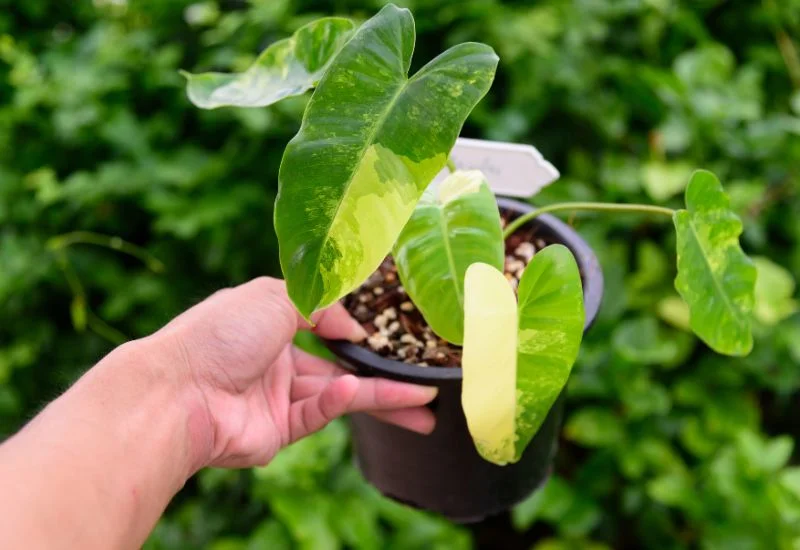
Aesthetic Appeal: Its big, glossy, heart-shaped leaves with cultivated edges make it attractive and tropical, complementing indoor decor.
Low Maintenance: Low maintenance plants for the home friendly with low to bright indirect light requirements and low water requirement.
Air Purification: It tends to enhance the quality of indoor air by removing formaldehyde, benzene, and other related chemicals. So, its presence enhances the quality of life.
Versatile Growth: It can be grown either on supports as a climber or in hanging baskets. It naturally trails well and suits most indoor environments.
Durable and Resilient: As it is known to be a hardy plant, it can endure forgotten periods and changes in the reuirements, making it suitable for different areas.
Philodendron Burle Marx Propagation
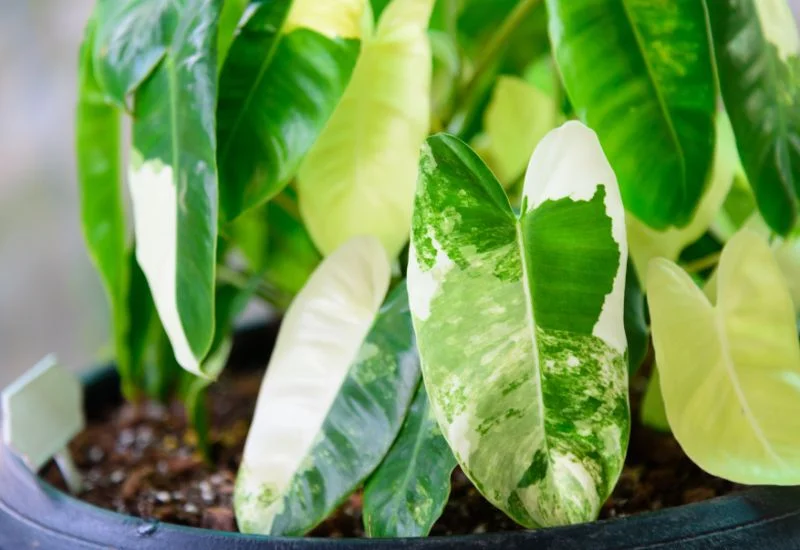
The propagation of this plant can be done by stem cutting. Take a stem with several nodes and a few leaves. Cut the lowest node. Put the stem in a soil or a jar of water. Keep them in a warm and humid place. In a month, the new roots will be growing out of the stems. You can also use the air layering method for plant propagation. Instead of cutting the stem, wrap moist sphagnum moss around the node and cover it with plastic. Keep the moss moist and keep it in a warm, humid place. Once the stem grows, cut the 2 inches of stem below and plant it out.
Repotting
The repotting of philodendron burle marx should be done every two to three years or once you notice it has outgrown the pot. Use one one-size pot. If you want to keep the soil from getting too wet, you can use a glazed pot. The soil change of plants is very important. Even if your plant does not need repotting, change the soil of the plant every 2 to 3 years.
Philodendron Burle Marx Care
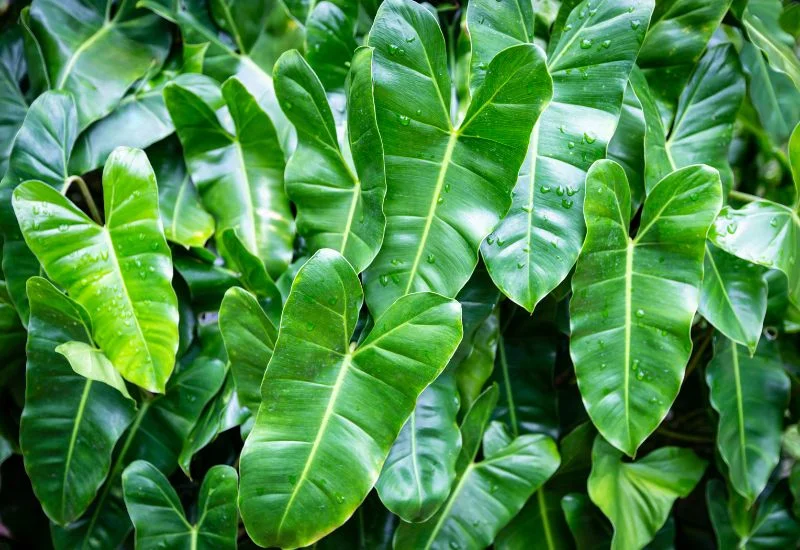
Philodendron burle marx plant is easy to care for if you follow the right steps:
Pruning
These plants do not need pruning. You can cut the leaves when they are damaged or burnt and that can be done at any time of the year. You do not need to trim your plant because its growth is compact. For pruning always use sterilized scissors and knives.
Soil
The soil for this plant needs to be porous enough that it can also contain the plant’s needed moisture. The philodendron burle marx needs a pH between 5.6 to 6.5. You can use peat moss; it is airy and will hold important nutrients.
Pot
For the healthy growth of plants use the porous pot. You can try Terracotta rather than glass or plastic pots. The clay pot is good for the air to pass through and for the secure roots of the plants.
Water
In the wild, these plants grow in the moist soil of the forest. The forest soil drains well and does not keep the roots of plants sopping wet. You can water your plants in the home when the 2 inches of upper layer of soil is dried. Pour the water slowly and let the soil to dry. The plant’s water needs can vary over the year, such as the plant needs more water in summer and spring compared to winter and fall.
Light
In the wild, this plant grows in the rainforest. Philodendron burle marx does not need direct sunlight. It needs bright but indirect light to grow properly. Exposure to direct light can damage the leaves of the plants. The plant needs light between 10000 to 20000 lux. It is easy to satisfy the light needs of the plant as it does not require additional lighting. In the winter you can use a handy light to provide the required light.
Temperature
The preferred temperature for the philodendron plant is 18 °C to 26 °C. Any home maintained within this temperature range would be ideal for this plant. The plant can tolerate a drop in temperature below 15 °C, but if the temperature reduces then 10 °C the plant will go dormant. Place your plant away from areas prone to freezing. This is a tropical plant and cannot tolerate freezing.
Fertilizer
Fertilizer is important for the beautiful and healthy growth of your plant. Use liquid fertilizer with a ratio of 10-10-10. Use philodendron burle marx fertilizer once a week. Apply the fertilizer evenly after watering your plant.
Humidity
The humidity requirements are straightforward: the steamier, the better. The preferred need of humidity is 80% which is too much for any home. These plants can grow happily in 50% humidity. Monitor the plant’s leaves if they start to get dry or if their edges become crispy. You need to increase the humidity level around the philodendron burle marx.
Placement
The best place to keep your plant is the north north-facing window. Place the plant from 6 feet of distance from the window. Make sure your plant gets enough light.
Types of Philodendron Burle Marx

There are two main types of this plant:
- The first one is Philodendron Burle Marx Variegata; it has variegated leaves. The color of the leaves can be yellow or white
- The second one is Philodendron Burle Marx “Fantasy” ; it has darker and more velvety leaves. This plant is often a slow grower
Philodendron Burle Marx Common Problems
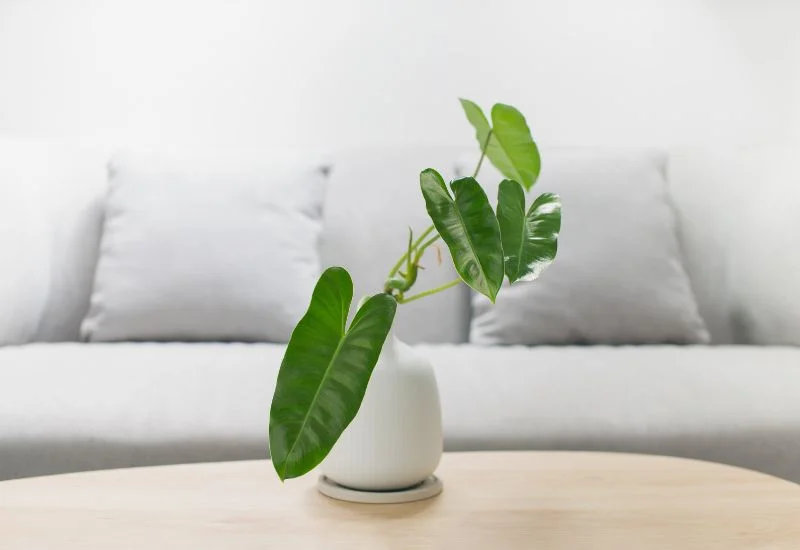
Here is a list of common problems in philodendron Marx:
Pests
Many insects can attack your plant. The first one is mealybugs, which make white fuzzy spots on the leaves of the plants. You can clean them with a cotton pad, soaked with rubbing alcohol.
Aphids are small flying bugs that start to live under the leaves. They can be removed by hand vc. Spider mites leave yellow spots and sticky spider webs on your plant. Give a good shower to prevent it.
The best way to protect your plants from any insects and bugs is to wipe down the leaves once a month and use neem oil or insecticidal soap to repel the insects.
Fungal Diseases
Diagnostics
Dark and black spots on the leaves
Causes
- Overwatering
- wet environment
Solution
- Avoid overwatering
- Remove affected leave
- Provide needed sunlight
Brown Tips
Diagnostics
The edges of the leaves start to turn brown.
Causes
- Low humidity level
- Less watering
- More exposure to sunlight
Solution
- Increase the humidity levels
- Watering your according to need
- Do not place in direct sunlight
- Cut off the affected leaves
Curling Leaves
Diagnostics
Curling of leaves of plants
Causes
- Insects feeding on leaves can cause curling leaves
- Too much heat or light
Solution
- Place your plant into the more humid area
- Water the plant as per their need
- Clean the leaves of plants to prevent any bugs
Yellow leaves
Diagnostics
The leaves of the plant start to turn yellow.
Causes
- Lack of sunlight
- Pets
- Underwatering
- Overheating
- Overfertilization
Solutions
- Provide needed sunlight
- Clean the plant at regular times to prevent any bugs
- Stop using fertilizer
Varieties & Similar Plants
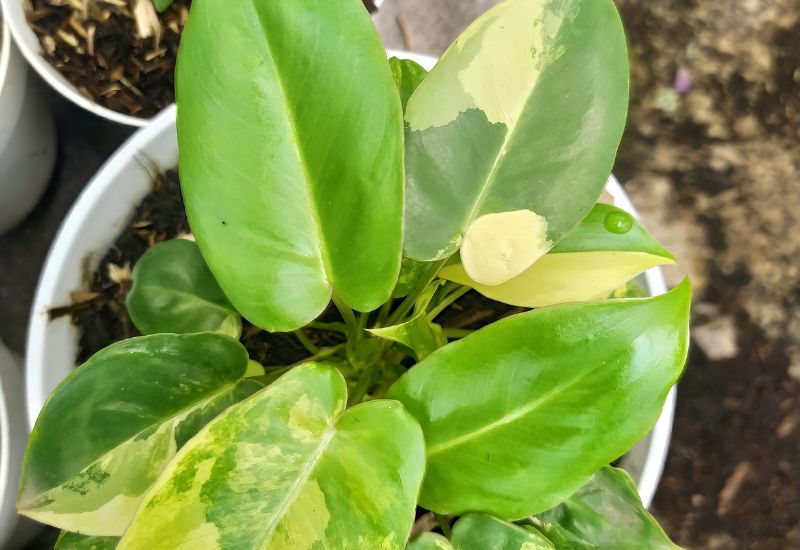
Here is a list of plants that have similarities to Philodendron Burle max:
- Syngonium podophyllum
- Alocasia
- Philodendron hederaceum
- Philodendron Selloum
- Epipremnum aureum
- Monstera deliciosa
- Philodendron gloriosum
Ready to Grab a Philodendron Brasil to add beauty to your home garden?
All the above information is reliable, and you’ll see outstanding results if you want to grow or care for this plant.
